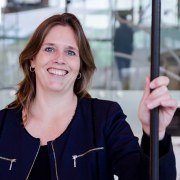Motivating Y-generation staff
A large part of our employees in the near future will belong to so-called Y-generation (born between the 1980s and the early 2000s). They are the most educated and culturally diverse of any generation before them, they’re also notorious job-hoppers who dislike bureaucracy and distrust traditional hierarchies—leaving many leaders scratching their heads. What motivates this rising cohort? How do you keep them engaged, earn their trust and use their ideas to make your science centre better?
Are we able to listen to their experiences? We have done this work for several years, we might sometimes think we “know and have seen it all” and we are not open for the experiences and stories of our student explainers. And after all- they are the future and they speak the language of our target groups.
Four professionals will give an overview of their experience.
Session speakers
Head of Tickets and Information Departament
I work mostly with students. Many of our explainers are just graduated and they also belong to theY generation. All of them are our subcontractors. We have over 200 explainers. At the same time there are at about 30-40 explainers at work. The most important positive feature of this group is that are very creative, they want to influence their work and believe what is important in our institution. The most important negative aspect is that work is not so important for them. It is a real challenge!
Manager of Public and Youth Engagement
Yale Peabody Museum of Natural History
The EVOLUTIONS Program employs students aged 16-21 in science communication at the Yale Peabody Museum of Natural History. Secondary school students work as museum interpreters, and college students work as classroom instructors and supervisors. through regular feedback, assessment and promotion, students are motivated and do excellent work, but we do wonder if we are setting unrealistic expectations for advancement in the future.
Project leader and coordinator Bachelor study information
We work with students of our faculty Mathematics and Natural Sciences to guide the tours and do the experiments. We have around 50 students working for us. The benefit is that the tour guide and the visitor more or less speak the same language and the school pupil can relate to the student. They think out of the box and the sky is the limit. At the same time they are not easily motivated to make a commitment. Thinking out of the box can sometimes lead to chaos. And it is their first job...




